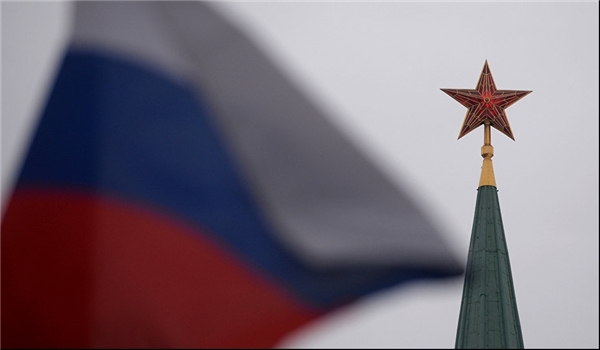Russia Says US Fails to Provide Evidence to Prove Moscow’s Involvement in Skripals Incident
 TEHRAN (Defapress)- "On August 8, 2018, our Deputy Chief of Mission was informed in the State Department of new "draconian" sanctions against Russia for far-fetched accusations of using the "Novichok" nerve agent against a UK citizen S. Skripal and his daughter by the "Russian Government". We grew accustomed to not hearing any facts or evidence," the statement read.
TEHRAN (Defapress)- "On August 8, 2018, our Deputy Chief of Mission was informed in the State Department of new "draconian" sanctions against Russia for far-fetched accusations of using the "Novichok" nerve agent against a UK citizen S. Skripal and his daughter by the "Russian Government". We grew accustomed to not hearing any facts or evidence," the statement read.
"The American side refused to answer our follow-up questions, claiming that the information is classified," the embassy said, adding that "however, we were told that the US has enough intel to conclude that ‘Russia is to blame’".
The US Department of State stated earlier in a statement that Washington was imposing new sanctions on Moscow over its alleged involvement in the poisoning of Sergei and Yulia Skripal in the British city of Salisbury. The first round of sanctions will take effect on August 22, while a second round may be introduced in 90 days in case Russia fails to meet certain conditions, the State Department stated.
The Russian embassy in the United States has called on the US Department of State to publish correspondence on the introduction of new sanctions on Moscow over the Skripal incident, the embassy said in a statement.
"For our part, we reiterated our principle stands on the events in the UK, which the Embassy had been outlining in corresponding letters to the State Department. We confirmed that we continue to strongly stand for an open and transparent investigation of the crime committed in Salisbury and for bringing the culprits to justice," the statement added.
"We suggested publishing our correspondence on this issue. No answer has followed so far," the Russian embassy stressed.
According to London, former Russian military intelligence (GRU) Colonel Sergei Skripal, 66, who had been convicted in Russia of spying for Great Britain and later swapped for Russian intelligence officers, and his daughter Yulia, 33, suffered the effects of an alleged nerve agent in the British city of Salisbury on March 4. Claiming that the substance used in the attack had been a Novichok-class nerve agent developed in the Soviet Union, London rushed to accuse Russia of being involved in the incident. Moscow rejected all of the United Kingdom’s accusations, saying that neither the Soviet Union nor Russia ever had any program aimed at developing such a substance.
However, the UK expelled 23 Russian diplomats and announced other restrictive measures against Moscow without presenting any evidence of its involvement in the incident. In retaliation to the UK’s steps, Russia expelled 23 British diplomats, closed the British consulate general in the city of St. Petersburg, while the British Council had to shut down its operations in Russia.
In the wake of the Skripal incident, a number of EU member countries, the United States, Canada and Australia announced the expulsion of Russian diplomats. Washington expelled 60 diplomatic workers and closed the Russian consulate in Seattle.
The Russian Foreign Ministry later announced retaliatory measures against counties that had expelled Russian diplomats. In particular, Moscow expelled 60 US diplomats and closed the US consulate general in the city of St. Petersburg. The United Kingdom was requested to reduce the number of its diplomatic staff in Russia so that it would match the number of Russian diplomats in Great Britain.
message end/
